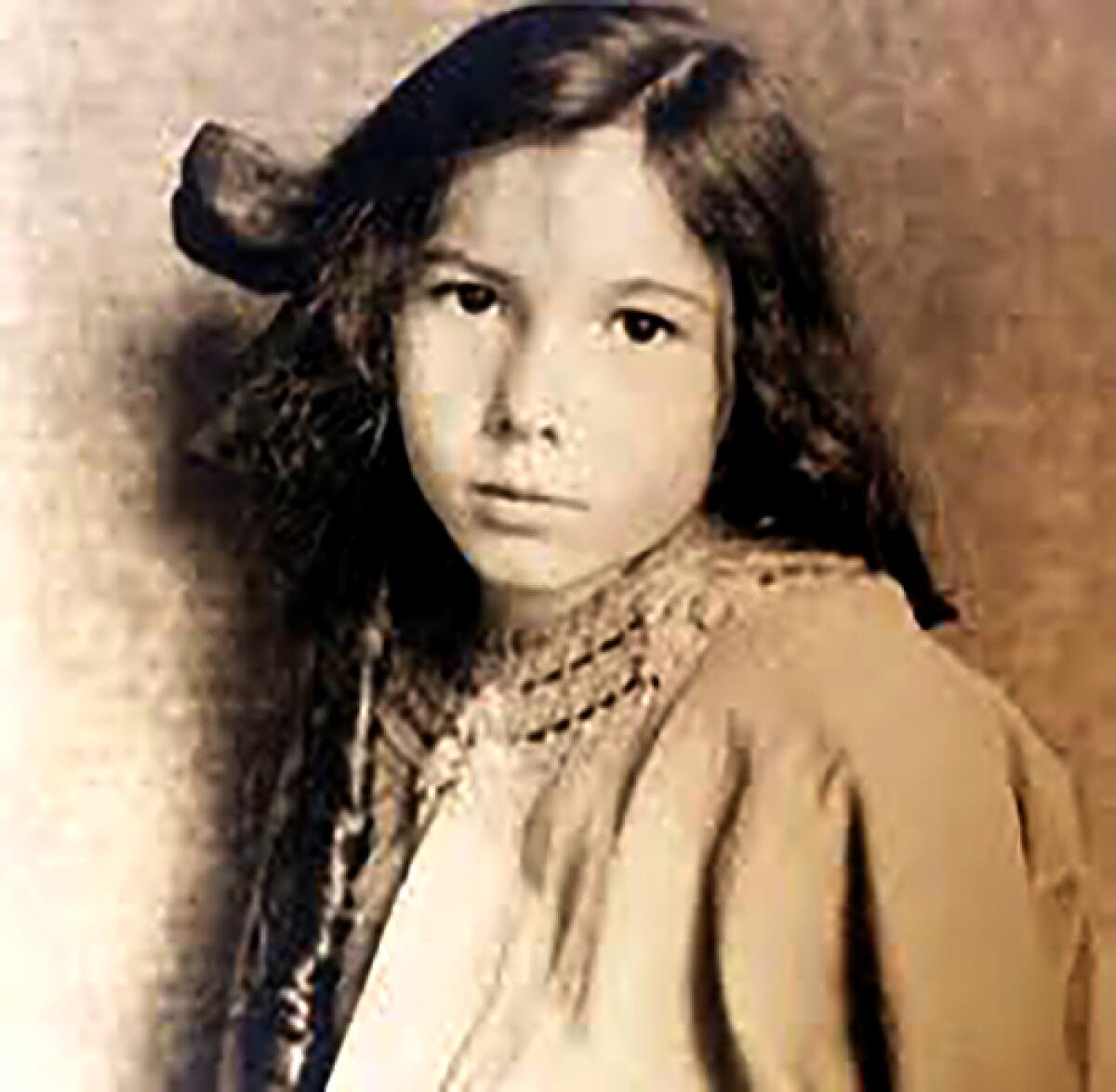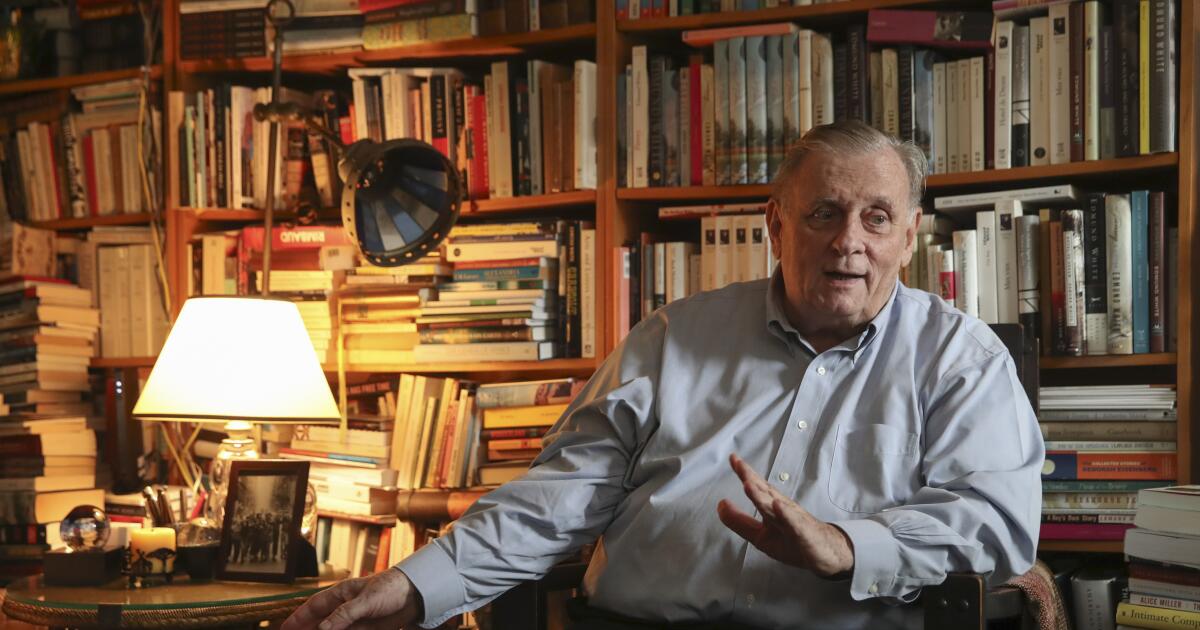Barbara Follett disappeared in 1939. Her life is now a musical
In the world of child prodigies, novelists are the rarest breed. Barbara Newhall Follett, born in Hanover, N.H., in 1914, fit the bill. By the time she was 9 years-old she had completed her first novel, a subsequent draft of which was published by Knopf when she was 12. Two years after that, she released her second novel. Both were met with critical acclaim, and Newhall became a celebrity in the publishing world.
Nearly a decade later, after a fight with her adulterous husband, the 25-year-old Follett left her apartment in Brookline, Mass., with $30 in her pocket and a notebook. She was never seen or heard from again. The mystery of the vanished former child genius has pulled at the public imagination ever since, resulting in a number of books and articles about her life and disappearance, including a 2019 essay in the Los Angeles Review of Books speculating that Newhall had committed suicide by ingesting barbiturates.
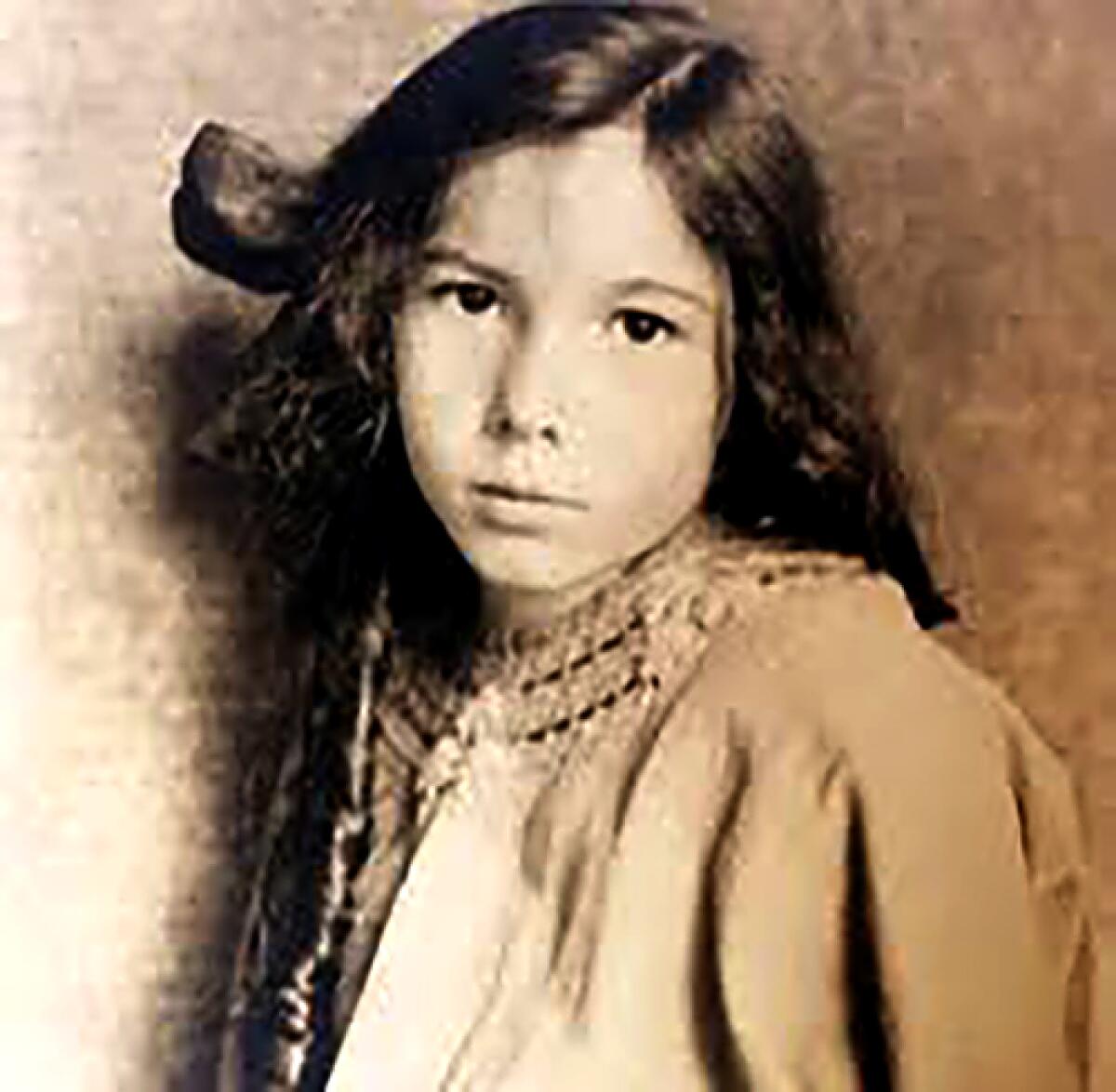
Barbara Follett, a child literary prodigy, is the subject of a new musical titled “Perfect World.”
(Courtesy of Stefan Cooke / Farksolia.org)
A world-premiere musical can now be added to the growing list of Newhall-themed explorations. “Perfect World,” written by Alan Edmunds and composed by Richard Winzeler, with lyrics by both men, opens Saturday at the El Portal Theatre in North Hollywood, running through Nov. 9.
The project marks Edmunds’ debut as a librettist. The retired psychologist — who specialized in gifted children — hit upon the idea of creating a musical about Follett’s life after a deep dive into her archives at Columbia University almost 15 years ago.
“As I’m reading through this, I start to feel the tragedy of what really happened to her,” Edmunds said during an interview at the theater over the pounding of hammers and the buzzing of drills as the detailed set was put together. “I thought this is the hero’s journey. Unfortunately, it’s not a happy ending.”
Edmunds was so inspired by the 15 boxes of archival material, including hundreds of hand-typed letters that Follett wrote to dozens of relatives and acquaintances, and endless lyrical descriptions of the imaginary world of Farksolia at the heart of her debut novel, “The House Without Windows,” that he drafted his initial outline for the musical on his knee while taking the subway from Columbia to Broadway to see “La Cage aux Folles.”
The show’s team took creative license in the retelling of Follett’s story, but for the most part Edmunds adhered to the broad strokes of her short, vibrant life. The musical hops back and forth between two story lines: Follett’s experiences up until her disappearance, and the nationwide investigation that unfolded afterward, led by the dogged Capt. Stahl and forever pushed forward by her grieving mother, Helen Thomas Follett.
Follett’s childhood was marked by unhappiness, Edmunds said, noting that Helen, who wrote for a commercial shipping company, and Follett’s father, a Knopf literary editor named Wilson Follett, fought often.
“They were at each other hammer and tongs,” Edmunds said. “And even when they wrote about Barbara, subsequently, you could feel the animosity between them.”
This made sense because about a year after the publication of Barbara Follett’s first book, Wilson left Helen for a much younger woman, moving in with her in Greenwhich Village. Her father’s desertion dealt a crushing blow to Barbara, who adored him. She subsequently embarked on a sailing journey with Helen from New York to Barbados and then on through the Panama Canal. Barbara became seriously ill during the journey — the result of nerves and depression, Helen thought.
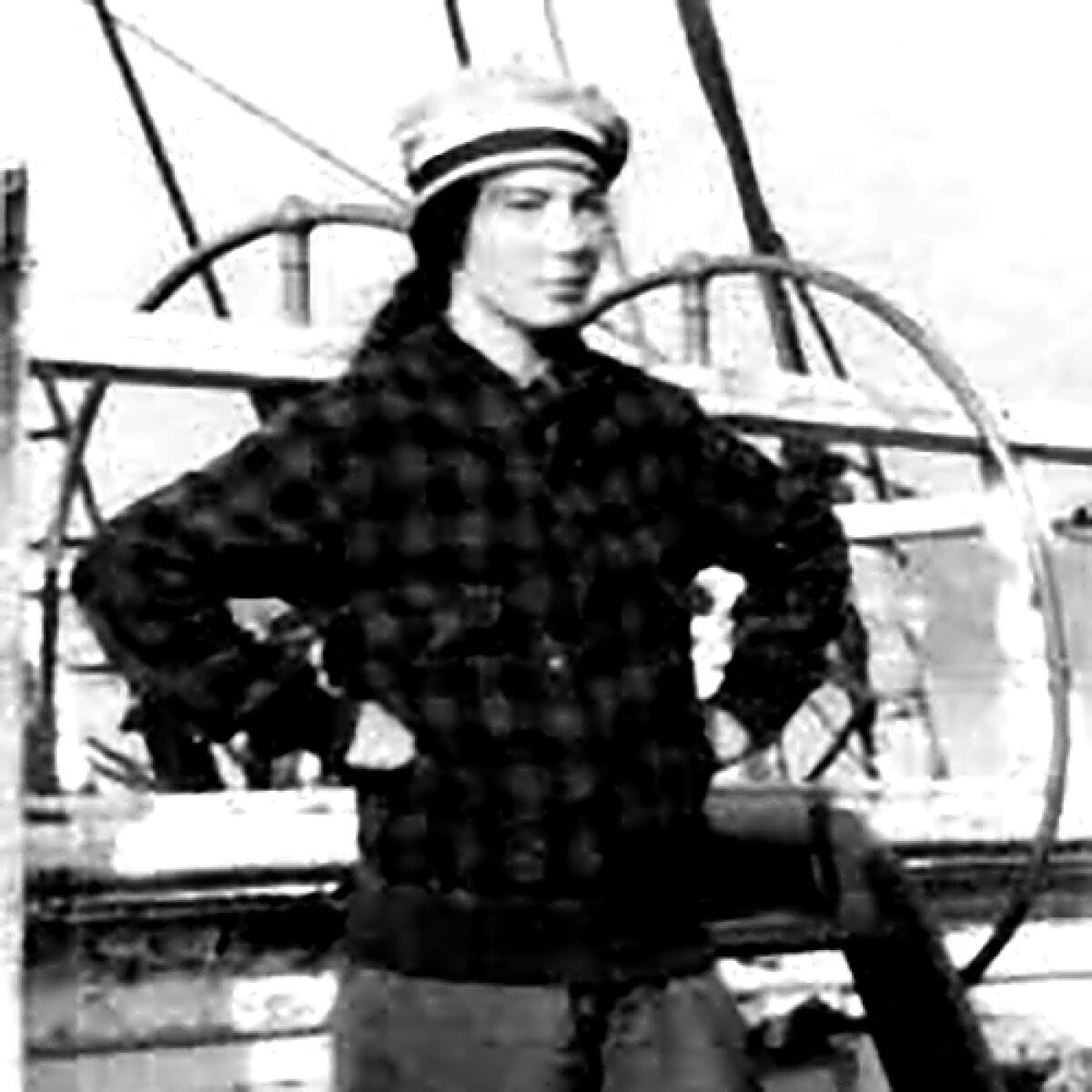
Barbara Follett, a child literary prodigy, is the subject of a new musical titled “Perfect World.”
(Courtesy of Stefan Cooke / Farksolia.org)
Around that time, Follett met and fell in love with a 25-year-old sailor named Edward Anderson. Helen did not approve, and Edmunds said she conspired to get Anderson fired from his position as second mate. The loss of Anderson was the second major blow in Follett’s life, Edmunds said, and it’s a thread that runs through the musical, leading to Follett’s meeting with a recent Dartmouth graduate named Nickerson Rogers — the man who would become her husband, and who would eventually leave her after having an affair with her best childhood friend.
The couple shared a love of nature, and before they were married, spent months hiking and camping together along the Appalachian Trail. Photos from the early 1930s show a slender, bare-legged Follett with short-cropped hair, sitting beside an open fire with a cooking pan and an old tin coffee pot.
Follett’s life was filled with crushing disappointment and near-constant stress, but nature provided a release. This is likely why she conjured up the perfect world of Farksolia at such a young age. It was an escape, and Follett packed it with as much detail as possible, including its own system of mathematics, its own language — Farksoo — and its own alphabet.
The heroine of “The House Without Windows” is a young girl named Eepersip who runs away from home to live contentedly with her animal friends in the woods. If it sounds simple, it was. But that was also its genius.
Critics loved it and it sold more than 20,000 copies upon its initial printing.
“I can safely promise joy to any reader of ‘The House Without Windows.’ Perfection,” wrote the English author of children’s books, Eleanor Farjeon, in a review.
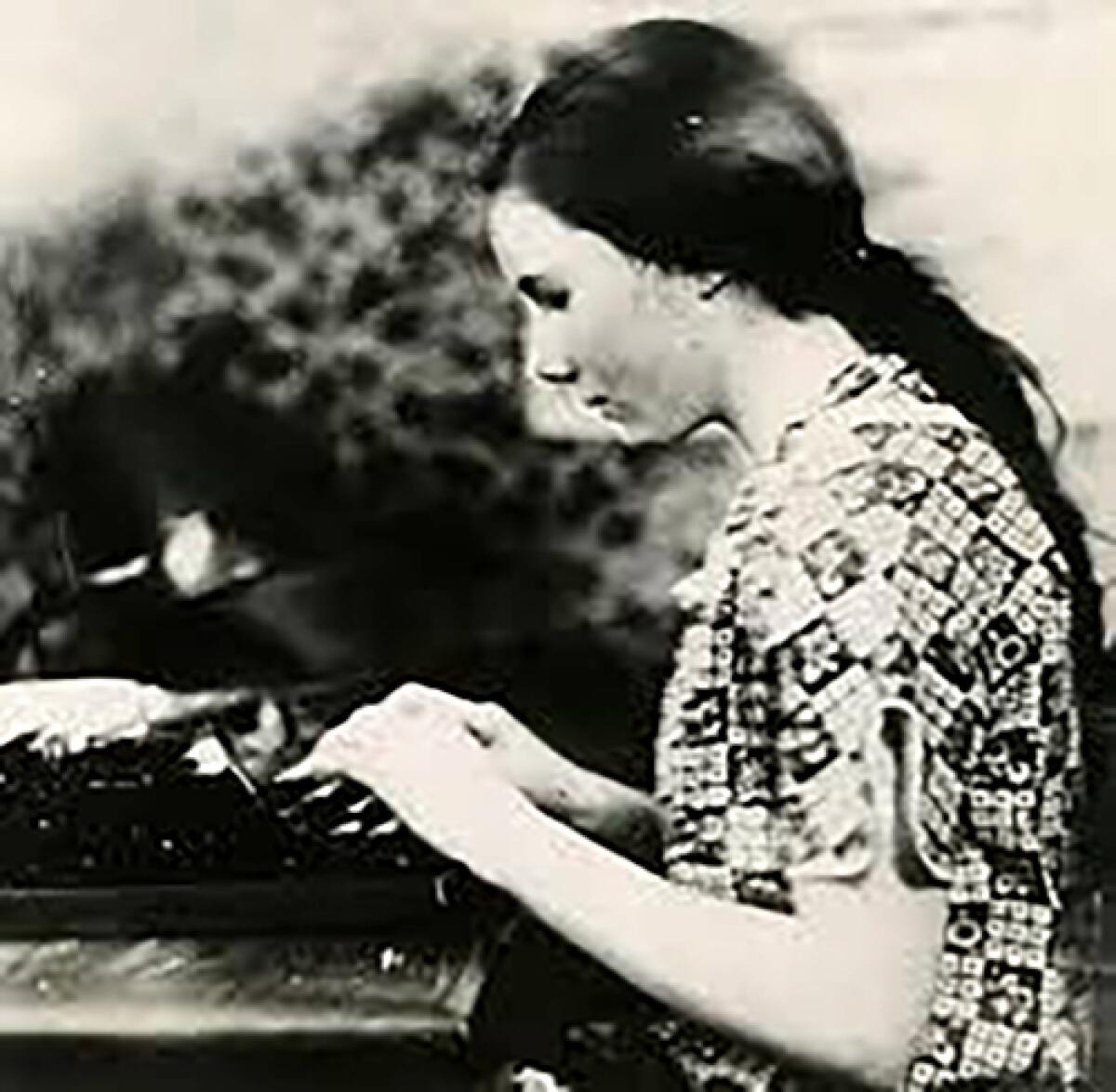
Barbara Follett, a child literary prodigy, is the subject of a new musical titled “Perfect World.”
(Courtesy of Stefan Cooke / Farksolia.org)
There are many theories about what happened to the adventurous and headstrong young woman after she vanished, including that she was killed by her husband, who had demanded she stop writing and failed to report her missing until two weeks after she left. Others think she simply moved far away, changed her name and continued to write under a pseudonym. Then there is the recently surfaced idea that she went to a family-owned cottage in the woods and swallowed enough barbiturates to end her life. That theory holds that a body discovered in the late 1940s was misidentified as another woman, when it was actually Follett.
Edmunds has given the matter extensive thought and believes that Follett loved life too much to kill herself. The idea that appeals to him the most comes from a crumb of a clue in Follett’s archives — a letter from the sailor Anderson that Follett received a short time before her disappearance. It could be surmised from her letters that she never stopped loving Anderson. Could it be that she went to find him when her husband’s affair became known to her?
Edmunds ultimately decided not to go down the rabbit hole of speculation about Follett’s demise, opting instead to focus the musical on Follett’s life, “What she did, how she rescued herself, how she was so engaged and connected to nature, and how she wanted people to take care of each other and be good to each other,” Edmunds said. “How we could have a better world.”
‘Perfect World’
Where: El Portal Theatre, 5269 Lankershim Blvd., North Hollywood
When: 7:30 p.m. Wednesday through Friday, 2 p.m. and 7:30 p.m. Saturday, 1 p.m. Sunday.
Tickets: Start at $22
Contact: perfectworldthemusical.com
Running time: 2 hours, 15 minutes
